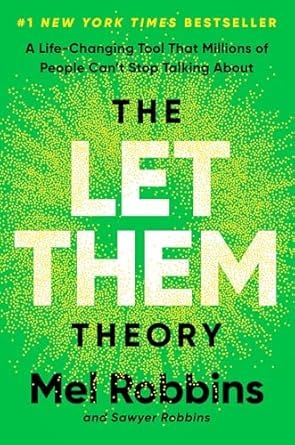Simplify Complexity
...to increase comprehension.
I was in Toronto last week to deliver a workshop on Communicating Mental Health Science to Lay People at the Society of Biological Psychiatry. Throughout the half-day that we spent together, I covered many frameworks to empower scientists to make their science accessible.
“It’s not about dumbing down your content,” I told them. “It’s about raising up the audience’s understanding.”
To ensure your complex message is understood:
1. Develop an analogy. The simplest patch (as discussed here last year) is to compare the unfamiliar to something we all know. Rachael Wallach’s comparison of trying on “frame after frame” at the optometrist’s office to being fitted for a wheelchair powerfully does just that. Compare what we know to something we do not.
2. Draw a diagram. At NYU Stern, one of the IT experts with whom I worked, Matt, was notorious for bringing only a clipboard of white copier paper to every meeting. At some point, when outlining a solution to a thorny problem, he’d start sketching what he meant. His simple sketches cut through complexity like a hot knife through butter. (See what I did there?)
3. Start with the end in mind. Sometimes, a challenging journey can be simplified by first sharing the vision of the destination. I often begin my USC classes in strategic corporate communication by watching a video of one of the final projects from a previous term. It helps let them know what the expectations are, but also reinforces that it can be done.
4. Build in plain sight. The converse can also work; it may be easier to share the step-by-step process to achieve a complex task so as to make it less daunting. You can share a rather complex data story with an audience if you give it to them in bite-sized, manageable chunks, rather than a huge data dump.
5. Share a story. As you might expect by now, my favorite tool for reducing complexity is to present it in story form. A well-crafted narrative allows you to make your point both clear and memorable. In 1981, I saw this brief scene on the TV comedy WKRP in Cincinnati. I still can recall the basics of the atom because of the story Venus tells Arnold, a struggling high school student.
I’ve only covered a few of the many simplification strategies here. To get even more, I recommend you check out Jeff Kluger’s 2018 TEDx Vienna Talk, Simplexity Ubiquity, or his 2007 book, Simplexity. As you encounter complexity in your own communication or that of others this week, look for ways to use these five steps to reduce complexity and increase comprehension.
Special Invite
My husband Ken and I set a goal about 18 months ago to find more ways to bring our talents together, to “10x” ourselves and our impact on the planet. Read on to learn about our latest collaboration.
We both devoured Mel Robbins’ book, Let Them. Ken has regularly given it to congregants at his church, just as I’ve been recommending it to clients in my practice. Robbins poses (and subsequently answers) the question: What if the key to happiness, success, and love was as simple as two words? We’re so on fire about the book and its potential that we’ve created a 3-part series of talks on the topic. We invite you to join us at 11 AM over the next three Sundays as we dive into this book and apply its concepts to the challenge of daily life. If you’re in the Bay Area, come in person to Unity SF at 240 Page Street; if not, check it out via livestream. We’d love to share these practical and powerful insights with all of you.
Talk of the week
Andrew Carlins’ LOWKeynote: Sometimes It Takes Being on the Outside to Think Differently was just released. It’s a wonderful and compelling talk with rich memories and clear insights. Take ten minutes and give yourself a treat. How is what makes you different actually a superpower?
JD’s Recommendations: what I’m reading, hearing, and seeing:
• Reading: Julie Pham beautifully reminds us of the “Value of Acknowledgement.”
• Hearing: Jeff Pfeffer welcomes Alex Rodriquez and Matt Abrahams onto his Pfeffer on Power Podcast, making a rich and engaging listen.
• Viewing: As we enter commencement season, I can’t help but to replay John Oliver’s hilarious mash up of Senator Chuck Schumer’s One and Only Commencement Speech.
As we move out of April and into May, may the signs of spring bring you great joy. Until next time…jds






Expert level tips, as usual. Love seeing you and Ken working together!
« raising up the audience’s understanding, » I like that.